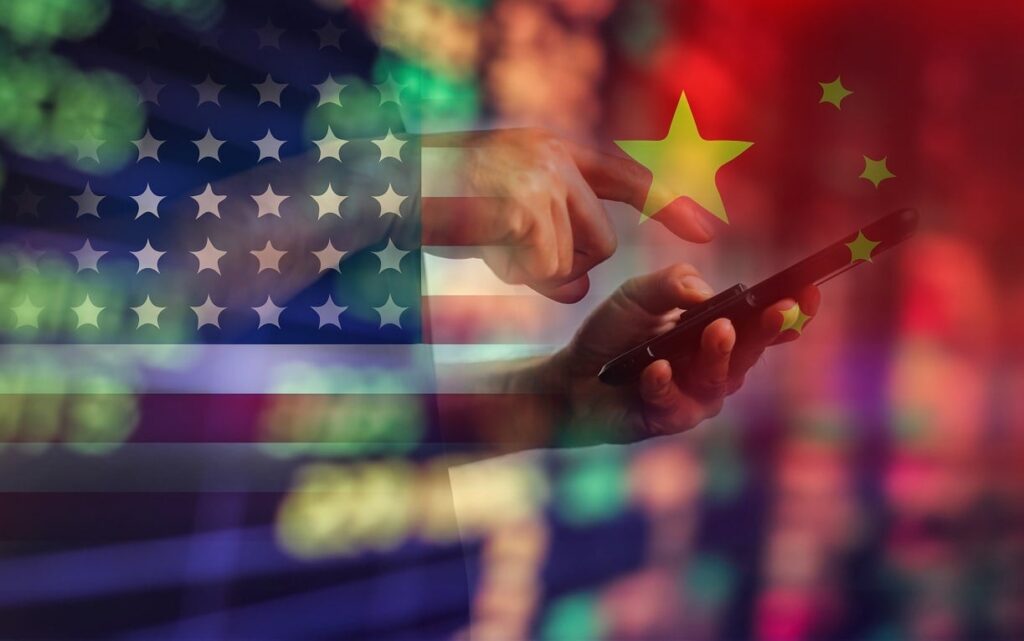Russia aside, Gallup polls show that more Americans see China as their top adversary, and policymakers seem to increasingly agree. Director of National Intelligence Avril Haines has argued that China is the “most significant threat” to our national security, and that that threat could come in many forms.
The United States is currently in a fierce competition with China over military and civilian technological developments, but unfortunately, some of Congress and Georgia's policymakers do not seem to see eye to eye. Congress, despite its shortcomings, has been pondering ways to assert America's technological superiority and independence over China, while state officials have been burdening American technology companies with lawsuits, over-regulation, and even the creation of laws that could directly benefit the Chinese government.
Earlier this year, the Georgia state legislature approved Senate Bill 351, a bill designed in part to prevent teens from using social media without parental permission, potentially even violating the Constitution. The law would require social media companies to verify the identity, age of users, and proof of parental responsibility for minors, likely requiring them to show a driver's license or birth certificate.
This comes with many cybersecurity risks, and users of the social media platform TikTok would be directed by law to hand over their personal information to the company, which is a subsidiary of the Chinese company ByteDance. While I have no idea if there is any truth to some of the rampant claims, policymakers and experts claim that TikTok has been or may be required to share users' personal information with the Chinese government. The concerns are so widespread that President Joe Biden signed a bill requiring TikTok's owners to sell the platform by the end of the year or be banned, a move that may not survive legal challenges.
If this wasn't enough, state policymakers have launched numerous attacks against U.S.-owned tech companies. Georgia has joined antitrust lawsuits against Google and Apple, alleging that the companies are monopolies. As I've written before, these lawsuits are patently absurd. Both of these companies face stiff competition and are not monopolies.
Nevertheless, legislative attempts over the years have also targeted domestic technology companies. For example, one proposal sought to mandate the way Apple and Google operate online marketplaces where mobile phone users can purchase and download applications. I don't understand why the government needs to interfere in such day-to-day business operations.
Georgia's approach to tech companies and competition with China can be puzzling at times, but Congress is at least taking the situation somewhat seriously, and Georgia is playing a key role in it, even if the strategy is flawed. Just a few days ago, South Korean-owned Absolix broke ground on a factory it's building in the Peach State to make microchip components. The Georgia investment appears to be primarily driven by the CHIPS Act of 2022, which aims to “strengthen U.S. manufacturing, supply chains, and national security,” according to a White House fact sheet.
The CHIPS Act was prompted by concerns about China's growing influence and technological power. Domestic microchip manufacturing has long been sluggish. “The U.S. share of global chip manufacturing fell from 37% in 1990 to about 12% in 2020,” The Wall Street Journal reported. This is especially alarming. Chips are used in virtually every technology, from cell phones to advanced military equipment and weapons. Supply chain disruptions during the COVID-19 pandemic have left the U.S. facing a severe microchip shortage.
Meanwhile, China is growing its ability to mass-produce crucial technology, making Americans increasingly dependent on Taiwan for microchips. What scares policymakers is that Beijing's leaders have made no secret of their desire to make Taiwan part of China, meaning all of Taiwan's technology and manufacturing could come under Beijing's control. With this in mind, Congress chose to pass the CHIPS Act, which would encourage domestic microchip development by offering cash grants and tax incentives.
The CHIPS Act was not without controversy. It was a massive government program with huge costs. “For all its waste, no one questioned how adding to $31 trillion in debt (more than $1 trillion of which is held by China) and expanding the federal regulatory behemoth through technocratic market intervention and industrial micromanagement would enhance American competitiveness,” my colleague Adam Thieler wrote in 2023. “You can’t beat China by being China.”
While the CHIPS Act has serious flaws, at least Congress had its heart in the right place. Rather than trying to stifle domestic technology development and manufacturing, Congress appears to want to strengthen it. If the Chinese government is truly an enemy of the United States, Georgia policymakers will need to rethink their approach and avoid policies that unnecessarily burden American technology companies.


